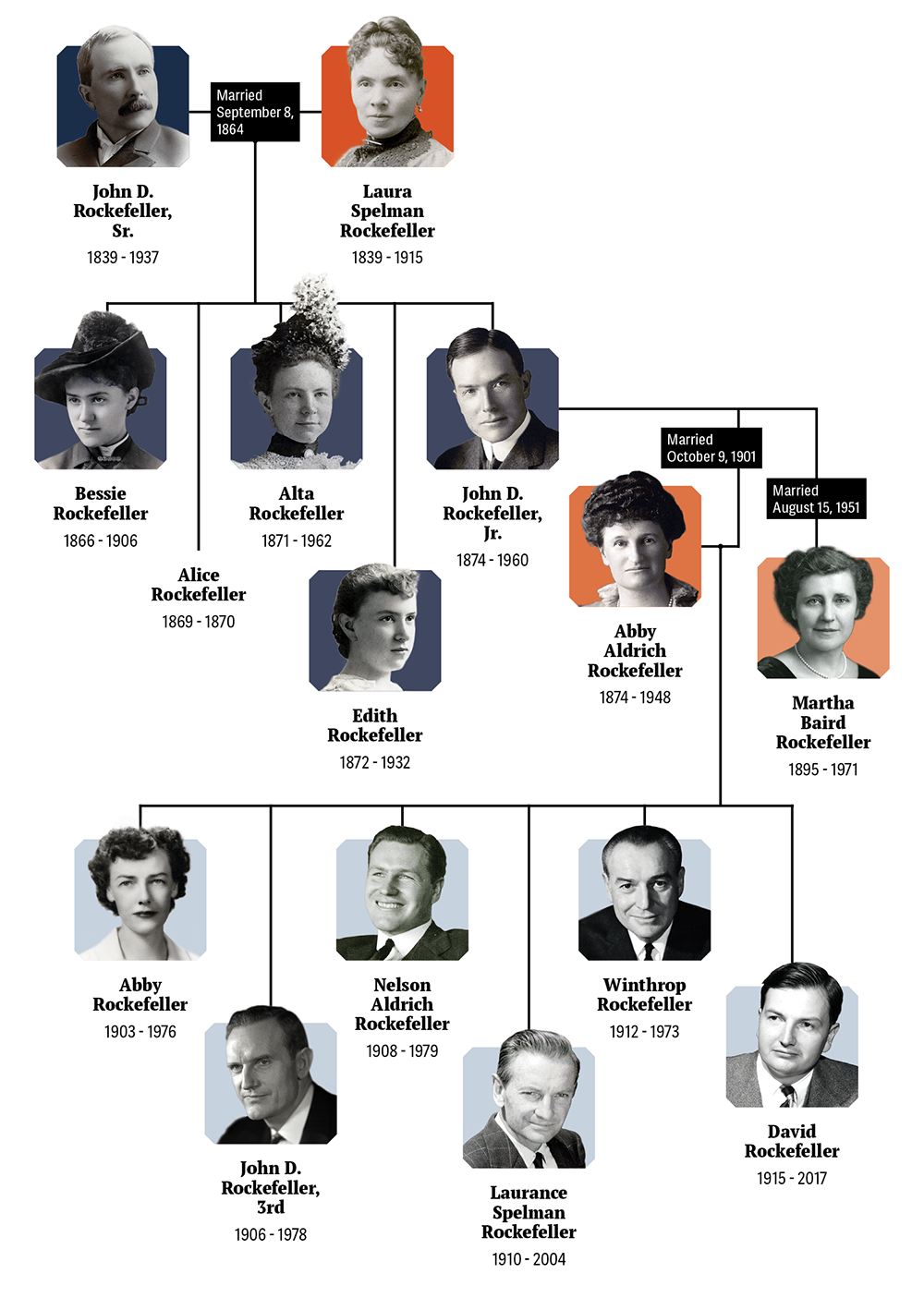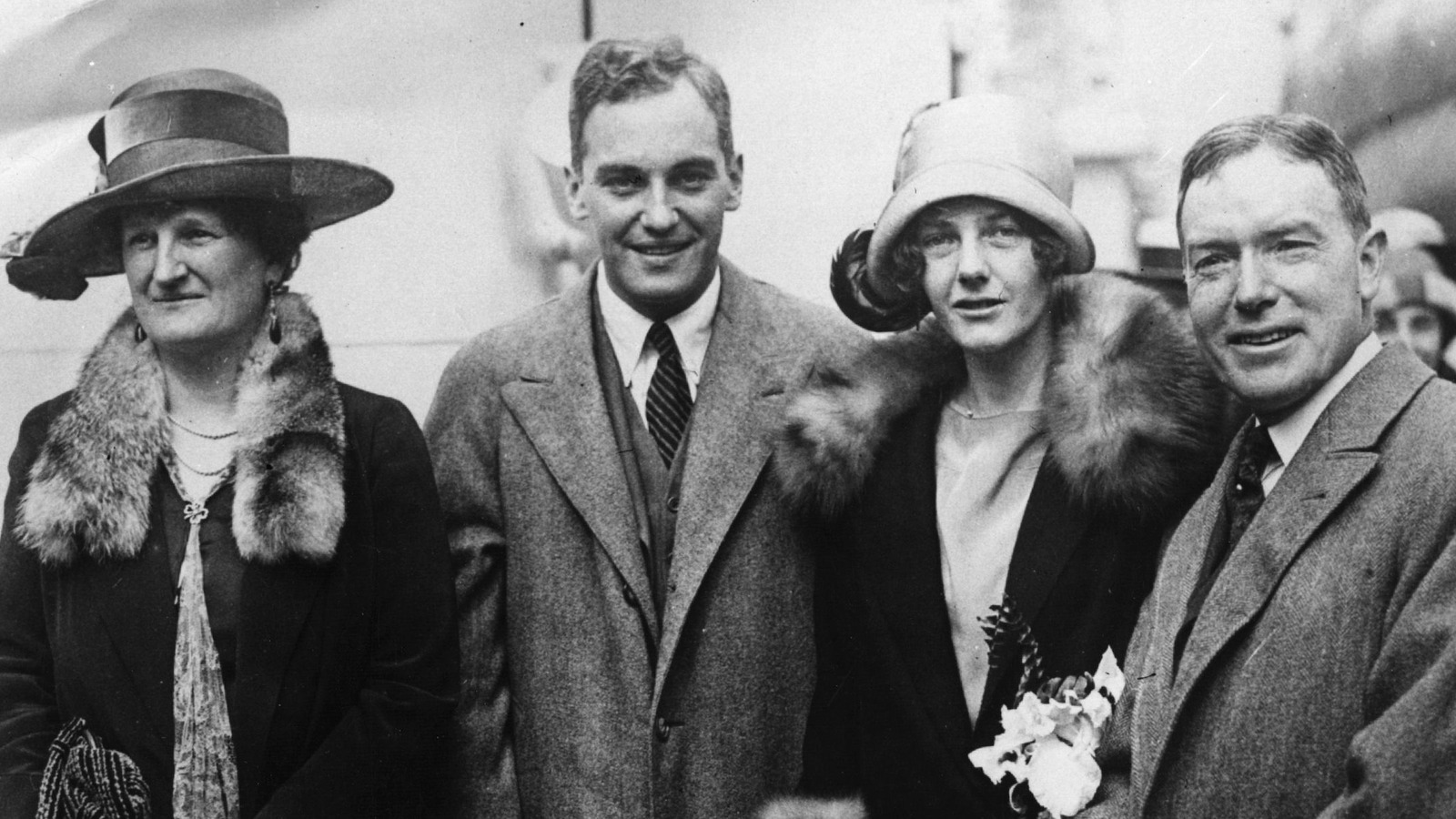Rockefellers: Secrets Of A Billionaire Dynasty & Legacy Explained
Can a familys legacy truly endure across generations, its influence woven into the fabric of a nation? The Rockefeller dynasty, born of oil and ambition, stands as a compelling testament to the power of strategic foresight, philanthropic endeavors, and the enduring strength of carefully constructed trusts.
In 1934, amidst the turmoil of the Great Depression, the Rockefeller family took a pivotal step, establishing their first trust. This was followed in 1952 by the creation of a formal dynasty trust, a sophisticated mechanism designed to safeguard their vast wealth for the long haul. Unlike typical inheritance models that simply pass assets to heirs, this trust was structured with a far grander vision in mind: preserving wealth, promoting specific values, and ensuring the family's continued influence. It was a bold move, setting in motion a legacy that would span generations, reshaping industries, and impacting global affairs.
| Category | Details |
|---|---|
| Full Name | John Davison Rockefeller |
| Born | July 8, 1839, Richford, New York |
| Died | May 23, 1937, Ormond Beach, Florida |
| Occupation | Business magnate, Philanthropist |
| Known For | Founder of Standard Oil, Philanthropic activities, Dynasty Trust |
| Education | High School |
| Spouse | Laura Celestia "Cettie" Spelman Rockefeller |
| Children | Elizabeth, Alice, Alta, Edith, and John D. Rockefeller Jr. |
| Key Achievements | Founded Standard Oil, One of the wealthiest Americans in history, Pioneered modern business practices, Established the Rockefeller Foundation and other philanthropic organizations |
| Legacy | Rockefeller's impact on business, philanthropy, and the shaping of modern America is undeniable. His legacy continues through the Rockefeller Foundation and other philanthropic organizations that he established. |
| Quote | "I believe the power to make money is a gift from God... to be developed and used to the best of our ability for the good of mankind." |
Reference: Encyclopaedia Britannica
The inner workings of the Rockefeller dynasty trust are complex, reflecting a forward-thinking approach to wealth management. The core function of this trust, and of dynasty trusts in general, is to ensure that assets remain within the family for generations, shielded from estate taxes and potential mismanagement. Individuals looking to emulate the Rockefeller model can begin by engaging in strategic estate planning, a process that involves establishing various trusts like revocable living trusts or irrevocable trusts. These legal instruments serve as a framework for preserving wealth and meticulously specifying how assets will be distributed across future generations. They offer a level of control and protection that traditional inheritance methods often lack.
The genesis of this remarkable story began with a young man born in Richford, New York, on July 8. John D. Rockefeller, from modest beginnings, meticulously tracked his finances, noting every receipt, expenditure, and charitable donation in Ledger A. With a mere $2,000 in funds, he embarked on a partnership with Maurice B. Clark, forming Andrews, Clark & Co. and entering the burgeoning oil business. His ambition was immense, but it was coupled with a strong sense of long-term planning.
The dynasty trust structure has had a profound impact, notably through the Rockefeller Foundation, which was established in 1913. The foundation, which has addressed a wide array of societal challenges, from public health to education and environmental conservation, has left an enduring mark worldwide. This underscores the dual nature of the Rockefeller approach: wealth preservation intertwined with a commitment to philanthropy.
The story isnt without its complexities. David Horowitz and Peter Colliers publication, "The Rockefellers," delved into the family's history, airing grievances and causing a split within the family. This highlights the inherent challenges of managing a vast and influential family across generations, showing that even in the face of incredible wealth, familial relationships can be strained by the complexities of the trust.
The question arises: Are the Rockefeller descendants as wealthy as their forebear? The answer is multifaceted. John D. Rockefeller, Sr. was the first American billionaire. His wealth, built on the Standard Oil empire 150 years ago, was unprecedented. The current value of the family fortune, while still substantial, must be considered within the context of economic shifts and the various philanthropic endeavors that have disbursed significant portions of the original wealth. The Rockefeller Trust Company and the Rockefeller Insurance Company, which manage family trusts and liability insurance, respectively, showcase the ongoing commitment to wealth management.
The Rockefeller's have also been involved in business, banking, politics, healthcare, education, conservation, and the arts, their impact can still be felt in the 21st century. Winthrop Rockefeller, the second youngest son of John D. Rockefeller Jr., chose a different path, initially working in various Rockefeller businesses before venturing into the cattle business in Arkansas, establishing Winrock Farms. He became a prominent figure in civil rights and social justice movements, further diversifying the familys influence.
The Rockefeller Insurance Funded Trust (RIFT), demonstrates another innovative approach. By combining the benefits of life insurance with the flexibility and control of a trust, the RIFT provides a robust mechanism for preserving wealth across generations, making it a key tool in their strategy. The Rockefeller dynasty has become known for philanthropy, which creates additional benefits, through establishing organizations that allowed the family to donate to causes important to them, creating tax savings while building a legacy of giving.
From humble origins in upstate New York to oil baron dominance, the Rockefeller story encapsulates many key events. This family continues to impact various fields as business, banking, politics, healthcare, education, conservation, and arts.
The legacy of the Rockefellers is a powerful example of how strategic planning, a commitment to philanthropy, and the use of innovative financial tools can help a family not only preserve its wealth but also extend its influence across generations. This offers a blueprint for anyone interested in creating their own enduring legacy, illustrating that the story of the Rockefellers is not just a tale of wealth, but also a roadmap to longevity, impact, and the continued evolution of a familys vision.



Detail Author:
- Name : Fernando DuBuque III
- Email : leanna98@gmail.com
- Birthdate : 1995-03-08
- Address : 2018 Ladarius Shores Apt. 068 Lindchester, AL 26882-9508
- Phone : 1-605-733-6242
- Company : Wyman, Treutel and Donnelly
- Job : Marine Cargo Inspector
- Bio : Maxime nostrum et beatae sint ea voluptatem veritatis. Quos reiciendis aut repellendus voluptatem qui qui quod quis. Omnis fugiat perferendis dolore. Quod quia in exercitationem qui et.